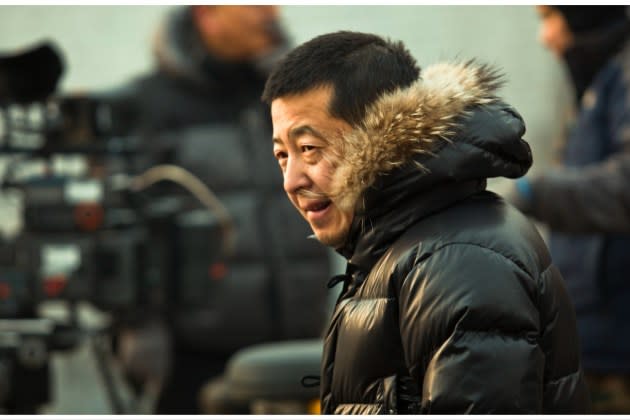Chinese Filmmaker Jia Zhangke to Be Honored at Visions du Réel Film Festival

Chinese filmmaker Jia Zhangke, who “humanizes China’s modern history – and turns it into poetry,” according to one critic, will be the guest of honor at Visions du Réel. The documentary film festival’s 55th edition runs April 12-21 in Nyon, Switzerland.
Jia, a leading figure in independent Chinese cinema, will present a masterclass exploring his body of work, and a retrospective of his films will run throughout the edition. The tribute is made possible thanks to the collaboration with the Cinémathèque suisse and ECAL, the university of art and design in Lausanne.
More from Variety
'Only the River Flows,' 'Inside the Yellow Cocoon Shell' Win Prizes at Pingyao Film Festival
'What Is the Internet Doing to Us?' Director David Borenstein Asks
“Since the outbreak of COVID-19, I haven’t left China for almost four years,” Jia said. “I feel like embracing the world again, as excited as a child about to go on a long trip for the first time. I am heading to Nyon for cinema that reveals the world as it really is.”
Jia belongs to a generation of Chinese filmmakers who were profoundly affected by the Tiananmen Square protests. His diverse filmography, which comprises more than 20 short and feature works, borrows elements from both genre and non-fiction cinema.
His work has received many accolades, including the Golden Lion at the Venice Film Festival and the best director award at the Asian Film Awards for “Still Life” (2006), and the award for best screenplay at the Cannes Film Festival for “A Touch of Sin” (2013). His entire career has also been honored at some of the world’s most renowned film festivals, including Locarno, where he received the Golden Leopard in 2010, and Directors’ Fortnight at Cannes, which awarded him the Carrosse d’Or in 2015.
Emilie Bujès, artistic director of Visions du Réel, said: “Switching from taught thrillers to documentaries and encompassing a myriad hybrid formats, woven together by non-professional actors, fictional works on a canvas of reality, and fantasies bypassing otherwise restrained stories, Jia Zhangke has spent two decades creating a filmography as coherent as it is shifting.”
Graduating in 1997 from the Beijing Film Academy, Jia returned to his home city of Fenyang in the Shanxi province to create his first full-length feature, “Pickpocket” (1997). Conceived with meager resources and without authorization, the film cast a disillusioned eye, in a distinct documentary style – like several of his other titles – on Chinese society, landing it with a national broadcast ban.
His next three works met the same fate: “Platform” (2000), “The Condition of Dogs” (2001) and “Unknown Pleasures” (2002). However, the latter was included in the Cannes Film Festival’s Official Selection. His melodrama “The World” (2004) was the first of his films to be screened in Chinese theaters, and starred his wife, the actor Zhao Tao, who has appeared in all of his fiction films since 2000. She won numerous awards for her performances in “Mountains May Depart” (2015) and “Ash Is Purest White” (2018).
Starting with 2006’s “Dong,” the filmmaker then embarked on an expansion into non-fiction cinema, by adopting the viewpoint of the painter Liu Xiaodong. He followed this up with “Useless” (2007), an exploration of the textile industry in China, and “24 City” (2008), which examines the disappearance of workers’ towns and the country’s modernization. He recounted the history of Shanghai in “I Wish I Knew” (2010) and gave voice to three Chinese writers on the changes taking place in their country in “Swimming Out Till the Sea Turns Blue” (2020).
Best of Variety
Sign up for Variety’s Newsletter. For the latest news, follow us on Facebook, Twitter, and Instagram.
